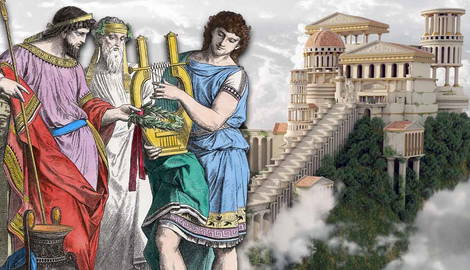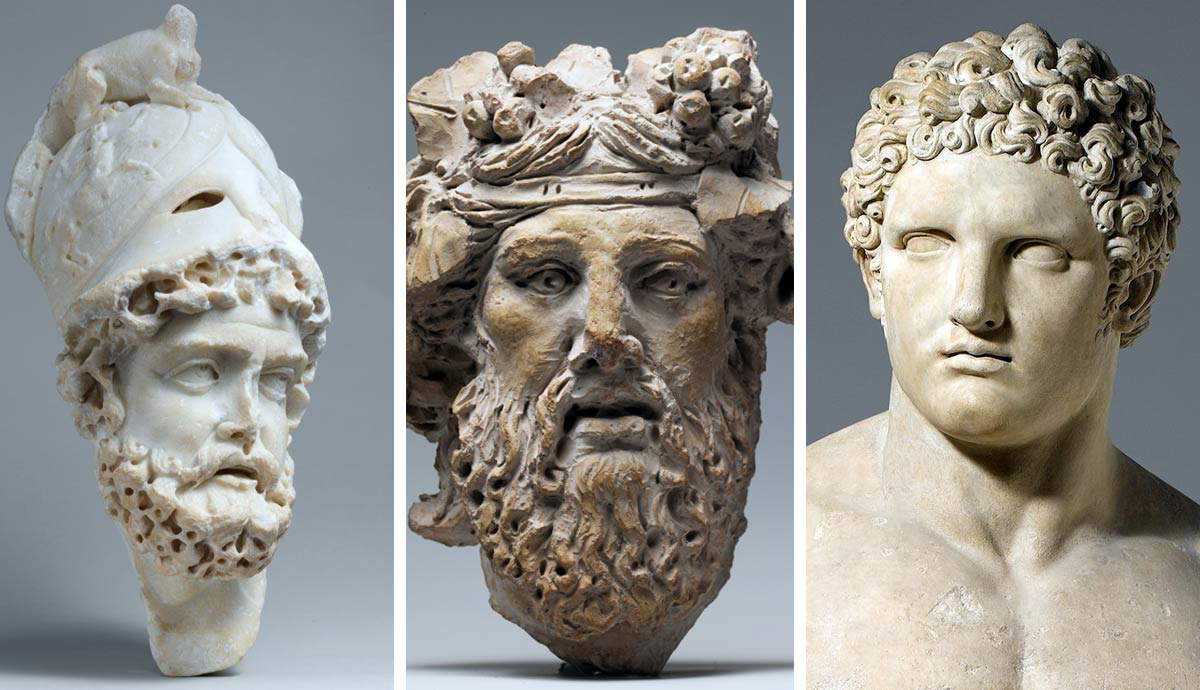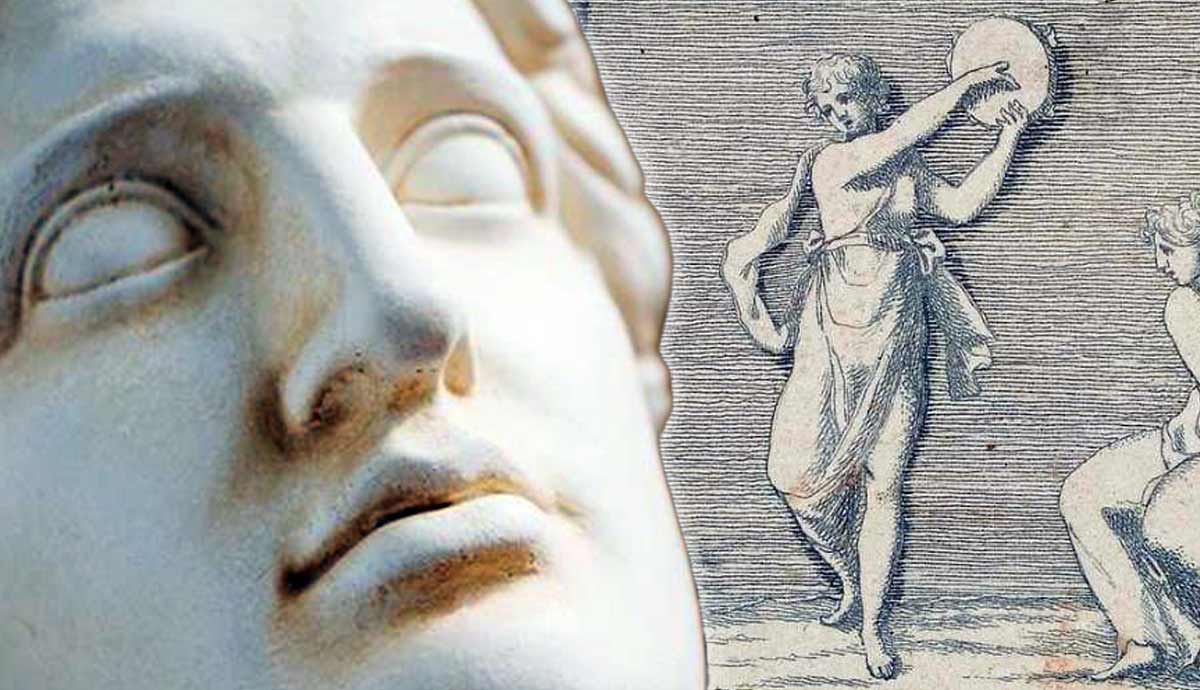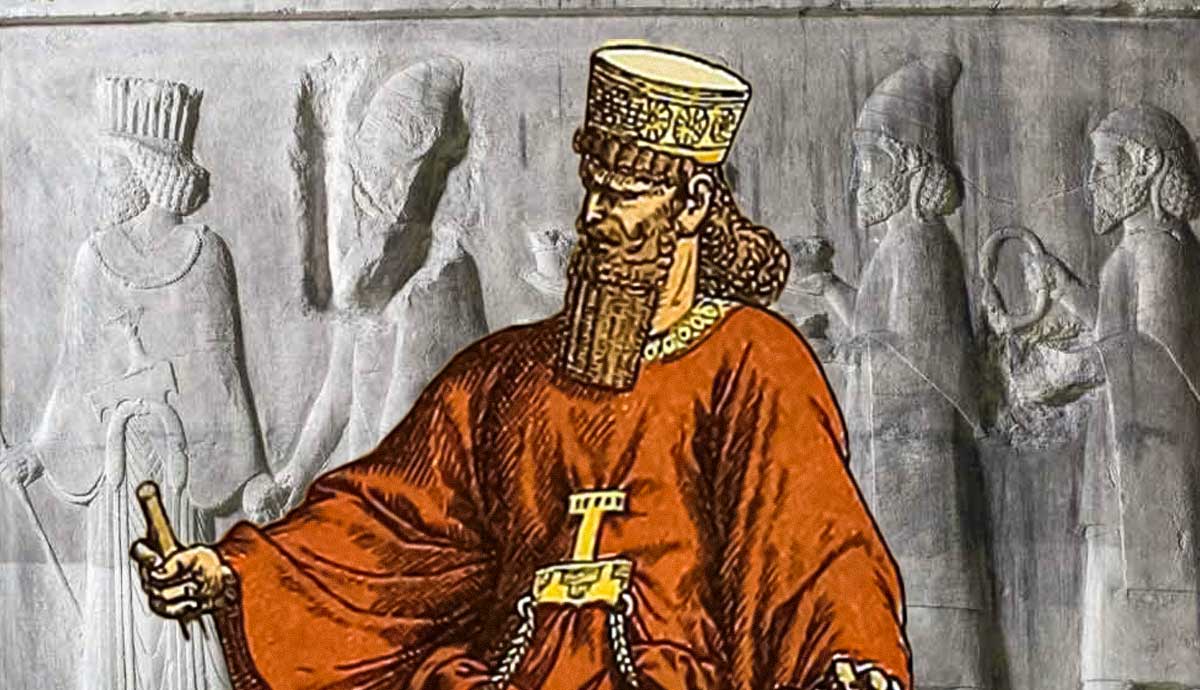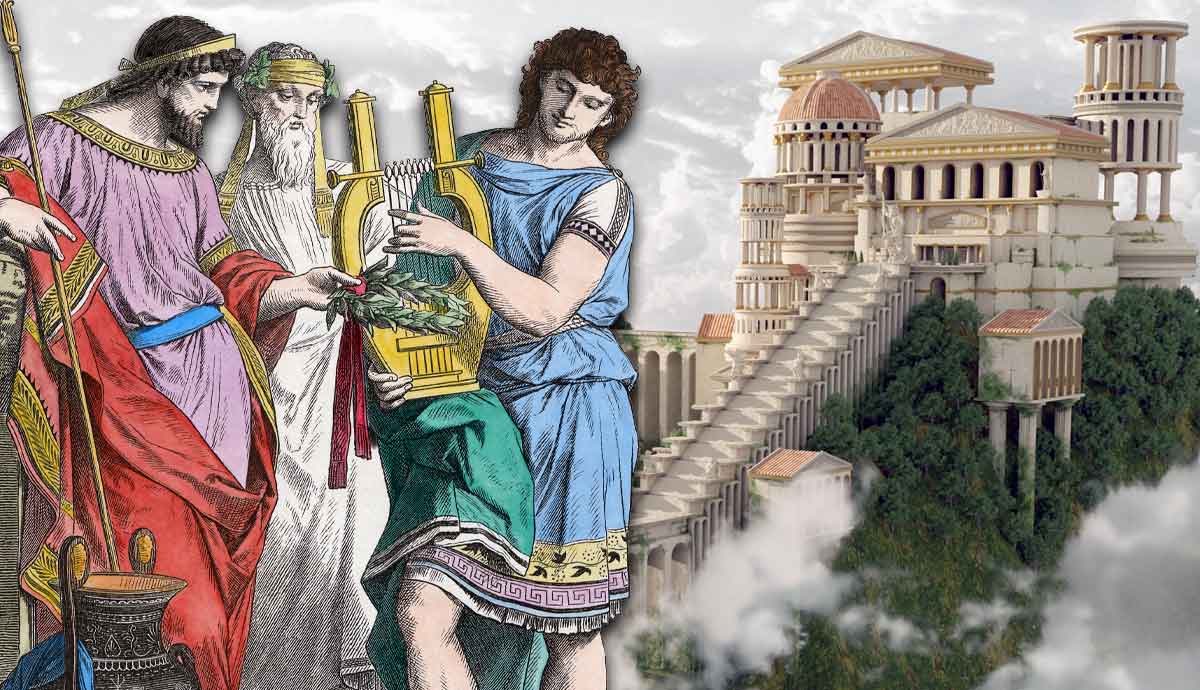
Greek mythology focused on the deeds of gods and semi-divine heroes, with most of the humans who got caught up in their escapades coming to a bad end. But some mortals made such an impression during their short lives that they were given a place in the heavens and made immortal. The process of becoming immortal or rising up to the heavens is known as apotheosis. This article tells the stories of some of the lucky mortals who found immortality in ancient Greece, and considers their veneration, which was complex, as while they were among the gods, they were still considered dead.
Ganymede

Ganymede was the son of the first Trojan king, Tros. He was said to have been so beautiful that Zeus turned himself into an eagle and carried him off to Olympus, where he was made immortal and given a place of honor as the cup bearer of the gods. Tros didn’t know what happened to his son and mourned for him every day. Zeus took pity on the man, giving him horses which Hyginus stated could “walk on water and the standing airs of grain.”
Virgil’s Aeneid states that Zeus’s fascination with Ganymede and his abduction was what first prompted Hera’s hatred of the Trojan, culminating in the Trojan War. In the 4th century BCE epic The Fall of Troy by Quintus Smyrnaeus, as Troy was being sacked by the Greeks, Ganymede wept at the horror he saw befalling his homeland. He pleaded with Zeus to shield him from the sight of the city falling, so Zeus covered the entire city with a thick mist so Ganymede would no longer see it.
Herakles

Herakles, mostly known today by his Roman name Hercules, was by far the most renowned hero in Greek mythology. He not only performed the most incredible deeds out of all of them, but he also had the widest variety of labors. Most of the others were famous for a single great task or mythic cycle, but Heracles performed many significant actions that don’t fall within his famous Twelve Labors.
His entire life was a grand epic cycle, from the moment of his birth to his untimely death. He was targeted by Hera even before he was born, angry that Zeus had fathered him on the mortal Theban Alcmene. She sent snakes to his crib to kill him. But the infant Hercules killed the snakes, and as an adult, he sacked Troy generations before the Trojan War, and even fought against Ares and won. Nevertheless, his life culminated in tragedy.
In the years after he completed his labors, Hercules went to Trachis to seek vengeance on King Eurytos for refusing to honor his victory in an archery contest that would win him the hand of the princess, Iole. He gathered an army of allies and sacked the city, killing King Eurytos and his sons and taking Iole as his bride by force. He sent a herald to get fine clothing, but the herald told Hercules’ current wife, Deianeira, about her husband’s love for Iole.

Deianeira feared that Hercules loved Iole more than her, so she sought a way to turn her husband’s affections back to her. She recalled that Nessos, a centaur that Hercules had slain with an arrow dipped in hydra poison, told her that his blood was a love potion, so she rubbed his blood into Hercules’ tunic. In reality, Nessos’ blood was tainted by the Lernean Hydra’s poison. When Hercules donned the tunic, the poison began to bite into his skin. He tried to take the tunic off, but it clung to him, causing him to rip off his own skin. When Deianeira learned what had happened, she hanged herself.
Hercules was carried back to Trachis, where he instructed his son, Hyllos, to marry Iole when he came of age. Heracles then made his way to Mount Oeta, where he built a pyre and climbed on top of it. He ordered it to be lit, but no one was willing except for the Argonaut Poias. A cloud was said to have passed underneath Hercules as he burned and raised him up to heaven, where he was accepted among the gods.
Ariadne

Ariadne was the daughter of King Minos of Crete and helped the hero Theseus defeat the dreaded Minotaur. Theseus promised to make her his wife, yet on his way home to Athens, he abandoned her on the island of Naxos. There she stayed until Dionysus arrived on the island and fell in love with her. Some myths relate that Ariadne was killed by Artemis on Naxos, which is why Theseus left without her, or that she hanged herself because Theseus left, and therefore she never met Dionysus. Others say that Dionysus took her from Theseus. An early version, from Hesiod’s Theogony, stated that she married Dionysus, who made her immortal. He also placed a crown, gifted to Ariadne by Aphrodite and the Seasons, among the stars to commemorate their union.
Semele

Semele was the daughter of Cadmus and Harmonia, who herself was the daughter of Ares and Aphrodite. Semele’s other claim to divinity was as the mother of Dionysus and one of the lovers of Zeus. She was tricked by Hera, who was disguised as her nurse, into asking Zeus to show himself to her in the same way he appeared to Hera. Semele had Zeus swear an unbreakable oath on the river Styx that he would grant her anything she wanted, then asked him to show his divine form. Zeus didn’t want to, but he had no choice. He became lightning and thunder, cracking open the sky, and the sight burned Semele alive. Upon realizing that she was pregnant, Zeus saved the unborn Dionysus from the womb and stitched him into his thigh. When Dionysus was big enough, Zeus unstitched him and gave him to mortals to raise.
When Dionysus had grown into a man, he was tasked with conquering the Indians. Upon completing that labor, he returned home and got permission from Zeus to bring up Semele from the underworld. Some sources claim that this was when Dionysus placed Ariadne’s crown in the sky as a constellation in order to commemorate his mother. Another account stated that Zeus placed her in the heavens after her death, where she could live forever in the company of the gods. From then on, her divine name became Thyone.
Menelaus and Helen

Menelaus was the king of Sparta and the brother of the Mycenaean king, Agamemnon. His wife, Helen, was kidnapped by Prince Paris of Troy while the prince was being hosted in Sparta. This incident incited the Trojan War. However, there was a version of the story in which Helen never made it to Troy. According to Herodotus, who learned the story from the Egyptians, the Trojans stopped in Egypt on their way home. The priests there learned of what Paris had done and so forced him to leave Helen with them so she could be picked up by Menelaus and the Greeks.
Unfortunately, the Greeks never stopped in Egypt and sailed directly to Troy. The Greeks didn’t believe the Trojans when they said Helen wasn’t in the city, so they besieged the city for ten long years. Another version from Euripides’ Helen recounted that there was a Helen taken to Troy, but it was just a phantom fashioned from clouds, and the real Helen had been whisked away to Egypt.
On his way home from Troy, Menelaus was shipwrecked and washed ashore in Egypt. There he found the real Helen and escaped with her back to Greece with the help of Castor and Polydeuces. The gods then said that upon Helen’s death, as a daughter of Zeus, she would be made into a goddess. In Homer’s Odyssey, the son of Odysseus, Telemachus, went to Sparta to speak with Menelaus and Helen. Menelaus told him that he learned of his own fate while in Egypt, and that he was destined to live forever in the Isle of the Blessed with Helen. This prophecy was fulfilled by Hera, who made him immortal.
In Aeschylus’ Orestes, the titular hero plotted to kill Helen both for her role in the Trojan War and as vengeance against Menelaus for shunning him after the murder of Clytemnestra. As Orestes was about to kill Helen, she suddenly vanished. Apollo later revealed that he whisked her away and placed her among the stars as a goddess.
Asclepius

Asclepius was the son of Apollo and Coronis. While she was pregnant with the god’s child, Coronis had a mortal lover named Ischys. When Apollo found out about the infidelity, he killed both Coronis and her lover. While she was on the pyre, Apollo or Hermes saved the unborn Asclepius and delivered him to the centaur, Cheiron, where he was raised and taught medicine.
Asclepius became a skilled physician and was said to have the ability to bring people back from the dead. Zeus feared that humanity would learn medicine from Asclepius and so overcome death, so he killed him with a thunderbolt. Apollo was so upset at his son’s death that he killed the cyclops who forged Zeus’ thunderbolt. A different account from Pindar’s Pythian Ode 3 tells that Asclepius was bribed by someone to bring the dead back to life, and so Zeus killed them both. According to Roman mythographer Hyginus, at the request of Apollo, Zeus placed Asclepius among the stars. He was later worshiped as a god of medicine.
